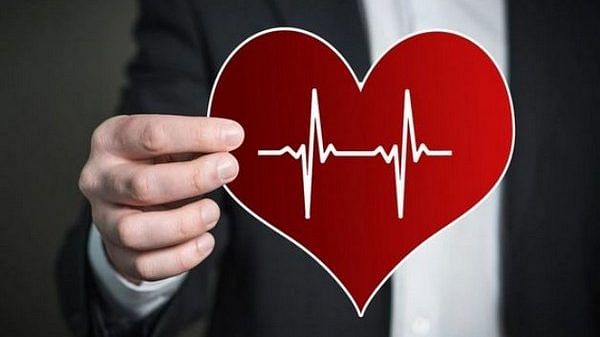The risk of heart attack is no longer based on age. In the past 20 years, there has been an increase in heart attacks among people under the age of 40. Between 2006 and 2016, heart attacks for this age group have risen by 2 per cent every year. Modern way of living and its consequences, such as fewer home-cooked meals, eating more processed foods, lack of physical activity, unattended chronic stress, obesity, and micronutrient deficiencies are some of the major contributing factors. Furthermore, most people do not know their blood glucose, blood pressure, and cholesterol levels — all of which are important factors determining heart health.
Role of diet in preventing heart attacks or other cardiovascular diseases is well documented. Numerous strategies have been developed by institutions and experts. But what if you have already suffered a heart attack? Recovery can be a long and arduous process. Rehabilitation may take weeks to three months depending on severity, treatment time, and aftercare.
Dietary patterns and overall nutrition are vital to returning to normal health. Here’s how.
Also read: Concerned about your risk of a heart attack? Here are 5 ways to improve your heart health
Modify existing lifestyle
First thing first – Assess and modify the possible lifestyle factors that lead to a heart attack. A positive lifestyle change involves losing weight if you are overweight or obese, moving more, quitting smoking, avoiding alcohol, staying away from stress, and ensuring quality sleep. Don’t start strenuous physical activity without consulting your doctor. Start walking slowly and gradually increase your speed. Exercises that increase blood circulation such as jogging, swimming, running, and brisk walking allow your body to receive more oxygen and strengthen your heart’s ability to transfer oxygen to other organs.
If you have a genetic predisposition or family history of heart disease, talk to your physician, and manage potential risk factors that could contribute to heart attacks in future. These conditions include hypertension, thyroid hormone malfunction, high cholesterol level, type 2 diabetes, anxiety, depression, and chronic stress.
General nutritional guideline
A sudden heart attack can create a sense of fear in eating regular foods. Most people opt for severe dietary restriction and miss out on essential nutrients. To ensure an effective recovery, the diet should be low in trans fats, sodium, sugar, and high in plant-based foods, dietary fibre, lean protein, and antioxidants. However, a holistic nutritional approach is recommended to support other physiological functions along with the cardiac system.
People who eat animal foods should start eating oily fish (salmon, mackerel, herring, sardines) and seafood to increase the intake of omega-3 fatty acids, an essential fat to prevent inflammation in cardiovascular tissues and promote heart health. Omega-3 also helps reduce cholesterol and triglyceride levels. Eating at least two servings or 150 g of fatty fishes per week could be highly beneficial when you rehabilitate.
Vegetarians and vegans can opt for nuts, seeds, beans, legumes, whole grains, and low-fat dairy to ensure optimum protein, vitamins, minerals, omega-3 and 6 fats, and antioxidant intake. Go easy on red meat and prefer eating lean meat such as skinless poultry. At least 3-5 servings of fruits and colourful vegetables are essential in a post-attack daily diet. This food group is the powerhouse of fibre, vitamins, minerals, and antioxidants. Eat curd, buttermilk, plain yogurt, and unsweetened probiotic drinks to promote gut health. You can eat whole eggs but no more than one per day. Alcohol should be replaced with healthy beverages — water, lemon-water, fruit, or cucumber-infused water, etc. Avoid processed, packaged, fried, salty, and fatty foods completely.
Also read: Sleeping after midnight is bad for your health, so is going to bed before 10pm, finds study
Best diets
Plan a diet specific to heart-health for most benefits. Research has linked the DASH diet and the Mediterranean Diet or MedDiet to maximum heart-health benefits. The MedDiet has gained popularity in recent times and has been ranked the healthiest diet for the fifth year in a row. This diet is rich in minimally processed plant foods, mono-saturated fats such as olive oil, low in trans fatty acids, red meat, high fat dairy, and thus an ideal ‘nutritional model’ for heart health.
A 2019 study analysed 45 research studies and found MedDiet to reduce the overall risk of stroke and other cardiovascular illnesses. Another trial study involving 1,002 coronary heart disease patients compared MedDiet and a low-fat diet and found that the former was more efficient in slowing the accumulation of plaque in the arteries, a threatening condition for sudden heart attack.
DASH or Dietary Approach to Stop Hypertension also promotes heart health as the diet contains low-sodium and low-fat dairy products. The results of the DASH-sodium trial, published 7 June 2021, revealed that a combination of DASH and sodium reduction lowered cardiac injury and strain, whereas DASH alone reduced high blood pressure.
In a nutshell
Recovering from a heart attack is critical and a casual approach towards the rehabilitation process could lead to future attacks or permanent damage to the heart. A wholesome balanced diet is crucial to prevent, promote, and support heart health. Don’t fear food and get into severe restrictions. Consult your doctor, dietitian, and fitness trainer to customise the best suitable plan for you.
Dr Subhasree Ray is Doctoral Scholar (Ketogenic Diet), a certified diabetes educator, and a clinical and public health nutritionist. She tweets @DrSubhasree. Views are personal.
(Edited by Prashant)



